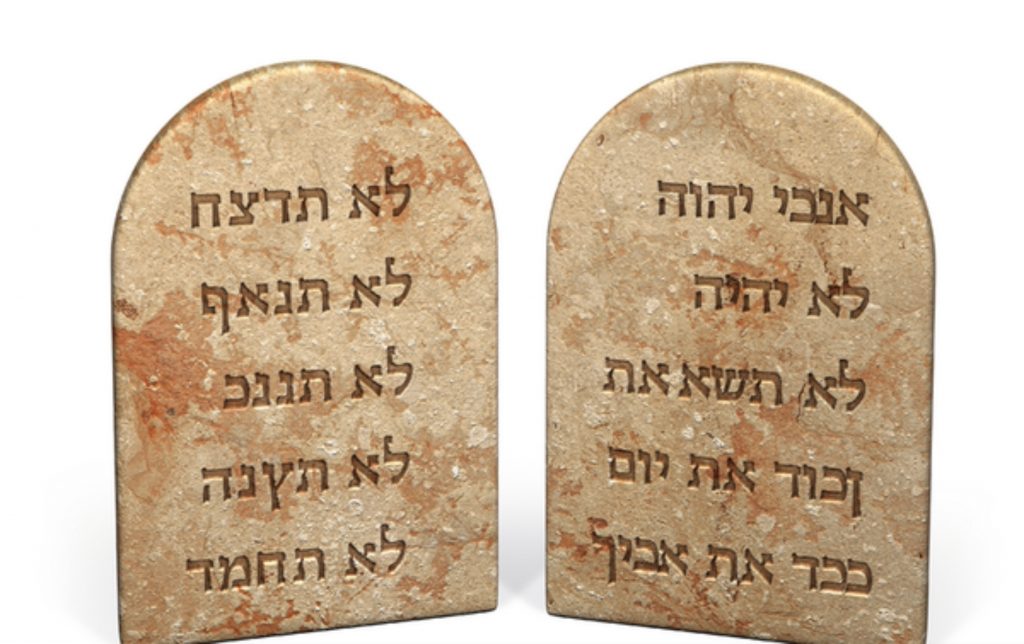Rosh Chodesh Elul

According to tradition, on Rosh Chodesh (1st.) Elul, Moses for the 3rd. time ascended Mount Sinai, taking with him the stone tablets for G-d to re-inscribe the Ten Commandments. Moses remained on the mountain for 40 days, from the 1st. of Elul until the 10th. of Tishrei (Yom Kippur), during that time G-d forgave and reconciled with the people of Israel. The month of Elul is the month of repentance, mercy and forgiveness.
“Every cloud has a silver lining”

As we welcome the month of Elul, it is our time, to take the time for a deep soul searching, reflecting on the way we were, the way we are, and the way we would like to be, as a preparation for the coming Day of Judgement, ראש השנה, and Day of Atonement, יום כיפור. Rabbi Shneur Zalman of Liadi compared the month of Elul to a king visiting his peasants in the field before returning to his palace.
The Shofar

During the month of Elul we blow the Shofar every day except for Shabbat, starting from Elul 1- Elul 28. The soul-stirring Shofar blasts inspire us to come closer to G‑d.
What is the meaning of Selichot?
During the month of Elul, Sephardic Jews around the world wake up before dawn, to recite the Selichot which consist of special prayers and poems. The word Selichot means “forgiveness”. We express our regret for committing all varieties of misdeeds over the last year. The Selichot are recited every day until the end of the Yamim Nora’iim.
What is the meaning of Aseret Yemey Teshuvah?
The period between Rosh Hashanah and Yom Kippur is called Aseret Yemey Teshuvah (עשרת ימי תשובה). During this period, we add extra prayers in the Tefillah and there are some extra songs that we say in the Selichot.
Love Love Love

Words are such a powerful tool. We create reality with words. We can build as well as destroy with a single word. Some people find it difficult to say “Sorry”, to admit they were wrong and to apologize. True, it is hard at times to say you’re sorry. During the month of Elul we all have an entire month to reflect, and find ways to reconcile with others. As a songwriter and a singer, I pay attention to written words, to spoken words, The Torah portion I read, as well as to the words I think, the lyrics I write and sing. I feel drawn to positive words, high frequency words like LOVE, and I try to shy away from low frequency words like HATE. Positive words move us in a profound way. Positive words are healing and are the building blocks of our wounded soul.
The meaning of Adon Haselichot

“Adon HaSelichot” piyut calls God by 22 different names, it is an alphabetic acrostic – the first line beginning with alef and the final line with tav. One for each Hebrew letter. From Adon HaSelichot (Master of forgiveness) representing the first letter, Alef; to Tamim Deot (Complete in knowledge) representing the last letter, Tav. The congregational response is : Chatanu lefanecha rachem ‘allenu, meaning: We have sinned before you, have mercy on us. This lovely melody is a traditional Eastern melody from Jerusalem. It reminds me of how much I love and enjoy Sephardic culture and music. The tune is upbeat, yet emotional as well. I remember hearing my Grandpa, who was a cantor, singing “Adon Haselichot” as a little girl at our synagogue. Click to listen to our performance “Adon Haselichot” G’mar Chatimah Tovah, may we all be signed and sealed in the book of life! Much love, Rabbi Yakira
Adon-Haselichot Transliteration
Adon ha-selichot, Bochen levavot Goleh amukot, Dover tsedakot
Chatanu lefanecha rachem ‘allenu (X2)
Hadur beniflaot, Vatik benechamot Zocher b’rit avot, Choker kelayot
Chatanu lefanecha rachem ‘allenu (X2)
Tov umetiv labriyot, Yodea kol nistarot Kovesh avonot, Lovesh tsedakot
Chatanu lefanecha rachem ‘allenu (X2)
Maleh zakhiyyot, Norah tehillot Soleach avonot, Oneh vatsarot
Chatanu lefanecha rachem ‘allenu (X2)
Poel yeshuot, TSofeh attidot Koreh hadorot, Rochev aravot Shomeatefillot, Tamim deot Chatanu lefanecha rachem ‘allenu (X2) This means: We have sinned before you, have mercy on us.
Adon Haselichot Translation
Master of forgiveness, Who examines hearts, Who reveals depths, Who speaks righteousness, We have sinned before you, have mercy on us.
Who is glorious in wonders, Who is eternal in consolations, Who remembers the covenant with our fathers, who delves into our innermost parts, We have sinned before you, have mercy on us.
Who is good and does good to living beings, Who knows all hidden matters, Who extinguishes wrongdoing, Who wears righteousness, We have sinned before you, have mercy on us.
Who is filled with merit, Who is awesome in praises, Who forgives wrongdoing, Who answers requests, We have sinned before you, have mercy on us.
Who works redemption, Who sees the future, Who calls out the generations, Who rides in the heavens, Who hears prayers, Who is pure in knowledge, We have sinned before you, have mercy on us.
